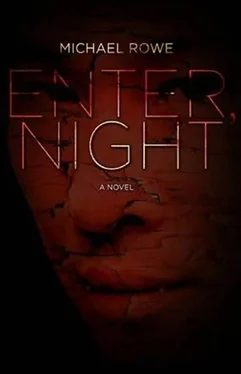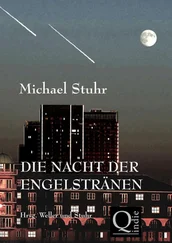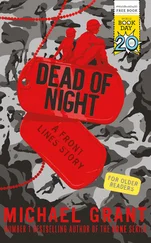“Askuwheteau!” I cried, running to him. “You came back! My friend, you came back to me! How can I thank you? Praise God!”
I fell into his arms and embraced him, holding more tightly to him than I had ever held to my father, or my brother, or indeed any friend. In that moment, the love I felt for my friend was even more encompassing, I confess, than any other love, including my love of God.
My noble Savage friend gazed at me with something I dared to imagine was pride, and put his arm around my shoulders. He guided me to the place where the creature that had called itself Father de Céligny lay dying. Its body was crumbling before my eyes, passing into some sort of malodorous, smoking foulness.
Askuwheteau drew back his head and spit. The spittle landed on the creature’s face. Askuwheteau said something in Algonquian that sounded like a curse, then averted his face.
But as I stared at the dying creature, a curious thought came to me. Its last words had been, We are coming for you, little priest. We are coming.
And then, all around me, I saw the glimmer of what seemed like hundreds of yellow eyes, and I heard the sound of panting. The wolves were perched on the rocks above us; they circled us at the base of the rock face, and even more of them lay in wait beyond the tree line.
I felt, rather than saw, Father de Céligny die. His-or its spirit surely passed me in the blackness, leaving a trail of hate in its wake. And as if the trail of hate were a signal to the wolves, they sprang as one, it seemed, and surged up the hill to where Askuwheteau, the de facto murderer of their master, stood.
In the face of my Savage friend I saw bafflement, and then, wonder of wonders, I saw terror. At that, my heart sank, for I knew that if brave Askuwheteau was in terror of his life, we were doomed. He backed away slowly from the deadly advance of the wolves.
He reached out with his arm as though to touch me, but I realized he was not seeking out my camaraderie. He was not seeking to die with me. He was seeking, even then, to save my worthless life.
Wordlessly, lest he hasten the inevitable coming assault from the wolves, he was frantically trying to communicate to me that I should run, that I should save myself.
And to my eternal shame, run I did, back to the mouth of the cave where I crouched behind the stinking, smouldering ashes of the monster whose power to ordain our bloody murder seemed to survive even its own apparent death. I knew somehow that the wolves would not dare approach the remains of their master.
My saviour Askuwheteau stood proud before the advancing horde of wolves. Even as he recognized the inevitability of his own horrible, coming death, his face was impassive.
And then he began to sing.
After a short time, the only sound was the ripping of flesh and gristle, and the terrible crunching of Askuwheteau’s bones in the gore-clotted maws of the wolves. They peeled the skin off his face with their teeth and tore his limbs from their sockets the way kitchen dogs might fight over a soup bone. When they had finished their awful work, there was nothing identifiably human in Askuwheteau’s remains.
They licked the bits of flesh still clinging to his bones with a horrible delicateness, as though it were a special treat being passed to them under the table by an indulgent master.
By then, night had fallen to such a degree that Askuwheteau’s blood soaking the ground was black in the rising moonlight, and the wolves themselves looked like ghouls squatting over an open grave devouring a freshly dead corpse.
They raised their heads then, and looked at me, growling low in their throats.
I closed my eyes and fell to my knees, hands clasped in front of me. I prayed to the Blessed Virgin that my death would be pleasing in God’s sight, and that it would be over quickly, and with as little pain as possible. Or, if that were not God’s will, that I be granted as much strength to endure it as He had granted Askuwheteau.
But the wolves did not attack. Instead, they loped over to where the arrow-pierced skeleton of Father de Céligny lay on a bed of rocky soil and fallen leaves. They circled it, tentatively sniffing the pile of smoking bones, but giving it a wide enough berth to suggest they feared that the ossified remains might yet be something alive, something hellishly vivid that could hurt them as no bullet or arrow could.
Then, as though it had burned them, they leaped back from the pile of bones, cowering like mangy curs before a master’s whip. As one, they threw back their heads and howled. My poor words here cannot do justice to the effect of that unearthly, haunting sound as it rose into the night and fell down upon the tableau in which I knelt. Then the wolves turned and bounded into the forest without looking back, not aimlessly, but as if they were being pursued by a hunter and were in search of safety.
Again, I was alone-truly and utterly alone. I mourned my Indian friend Askuwheteau, this man whom I had dismissed as a Judas and a Savage, but who had shown the courage and faithfulness to come back to a place he feared in order to secure my safety. In all truth, he had saved my life, and he had died in my place. The tears I wept that night for Askuwheteau were the bitterest of my life, and none I’ve shed in the long years since that night have been harsher or more absinthial.
I drew the sign of the cross over what remained of his poor mauled face, and bowed my head. “Eternal rest grant unto thy servant Askuwheteau, O Lord,” I prayed. “And let perpetual light shine upon him. Grant him absolution, O Lord. May he rest in peace. Amen.”
Feeling my way through the darkness, I walked back to the village. I knew that there were perhaps more of these demons hiding in the forest watching me, but I cared little of it, so heavy was I with the weight of grief and guilt. If the Devil and his minions had been so able to use a priest as a vessel to serve his will as he had with Father de Céligny, then my life, and my immortal soul, were in God’s hands, as they always had been. But my work that night was far from over.
Inside the Jesuit house, I found a torch of cedar and pitch. I lit the torch, then put a second torch in my bag. There was a shovel leaning against one wall. The heft of it gave me comfort, for I believed I could make a decent weapon of it if it came to that.
The path back to the caves through the trees was easier this time because of the light of the torch. Easier in one sense, for the path was well-lit and I made good progress. Harder in another, for I now knew, beyond any measure of a doubt, what monsters, earthly and unearthly, could hide outside that ring of torch-light.
Upon arriving at the caves, I saw that the two piles of bones were as I had left them. The first pile, the remains of my poor Askuwheteau, I would bury. Though it was against the customs of his people to lay them beneath the earth, Askuwheteau had fought and died as bravely as any Christian, and it was only natural that he be buried as one. I lamented the fact that I had not had the chance to baptize him before he died so horribly. After I had completed my most pressing task, I swore to him that I would attend to his burial with due reverence.
The second pile of bones, the bones of de Céligny, I approached with dread. I pushed the torch close to the charred skeleton. At first I doubted the proof of my own eyes, for it surely seemed as though the creature whose body I had watched crumble and dissolve once pierced by the arrow would have found some way to render itself vivid once again.
And yet, as I said, it was where I’d left it, and as I left it. I wedged the base of the torch between two boulders and, by its guttering light, I surveyed the grotesque thing.
I raised the shovel over my head and brought it down squarely across the neck, severing the skull from the body with a single blow.
Читать дальше












